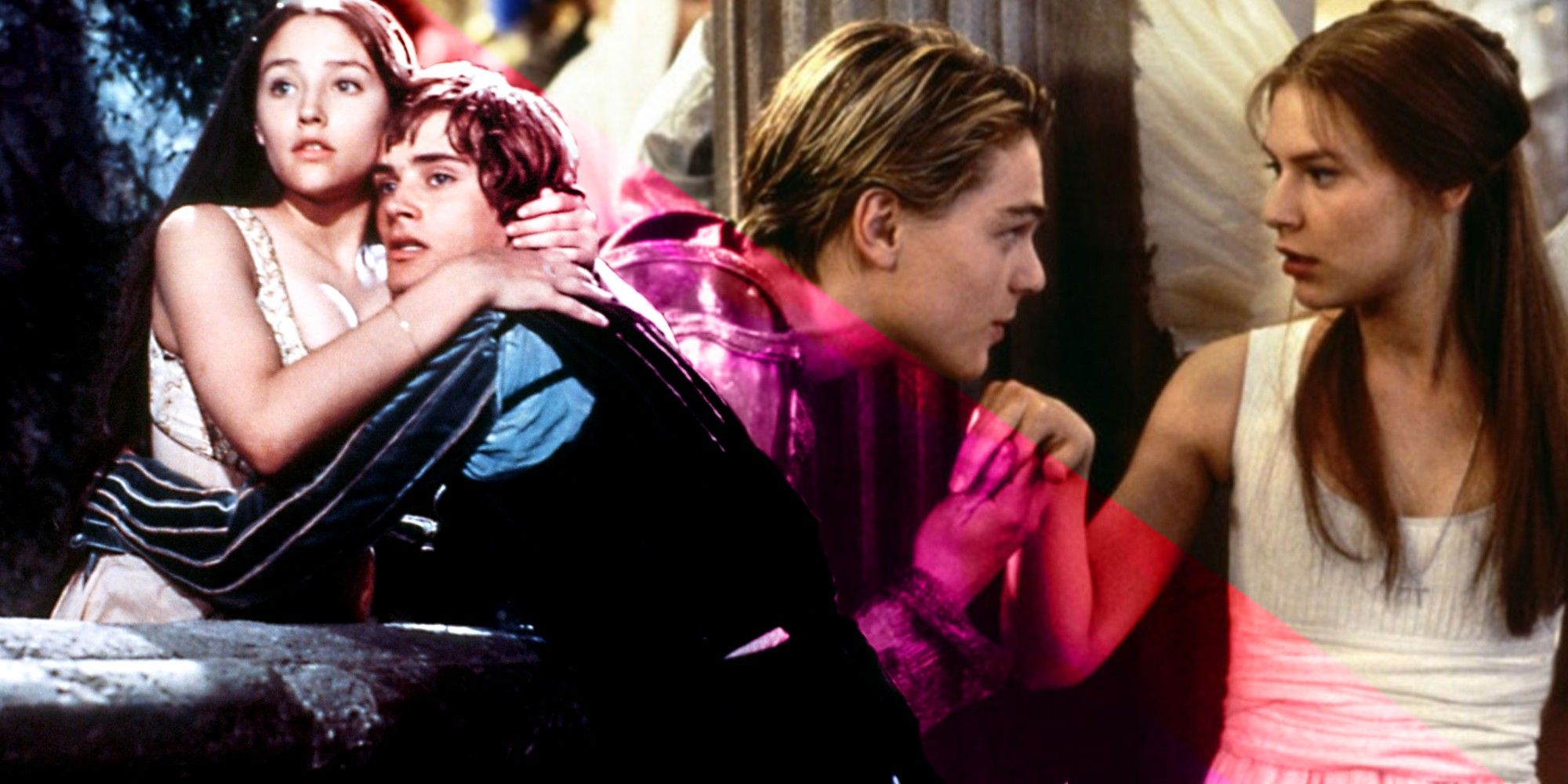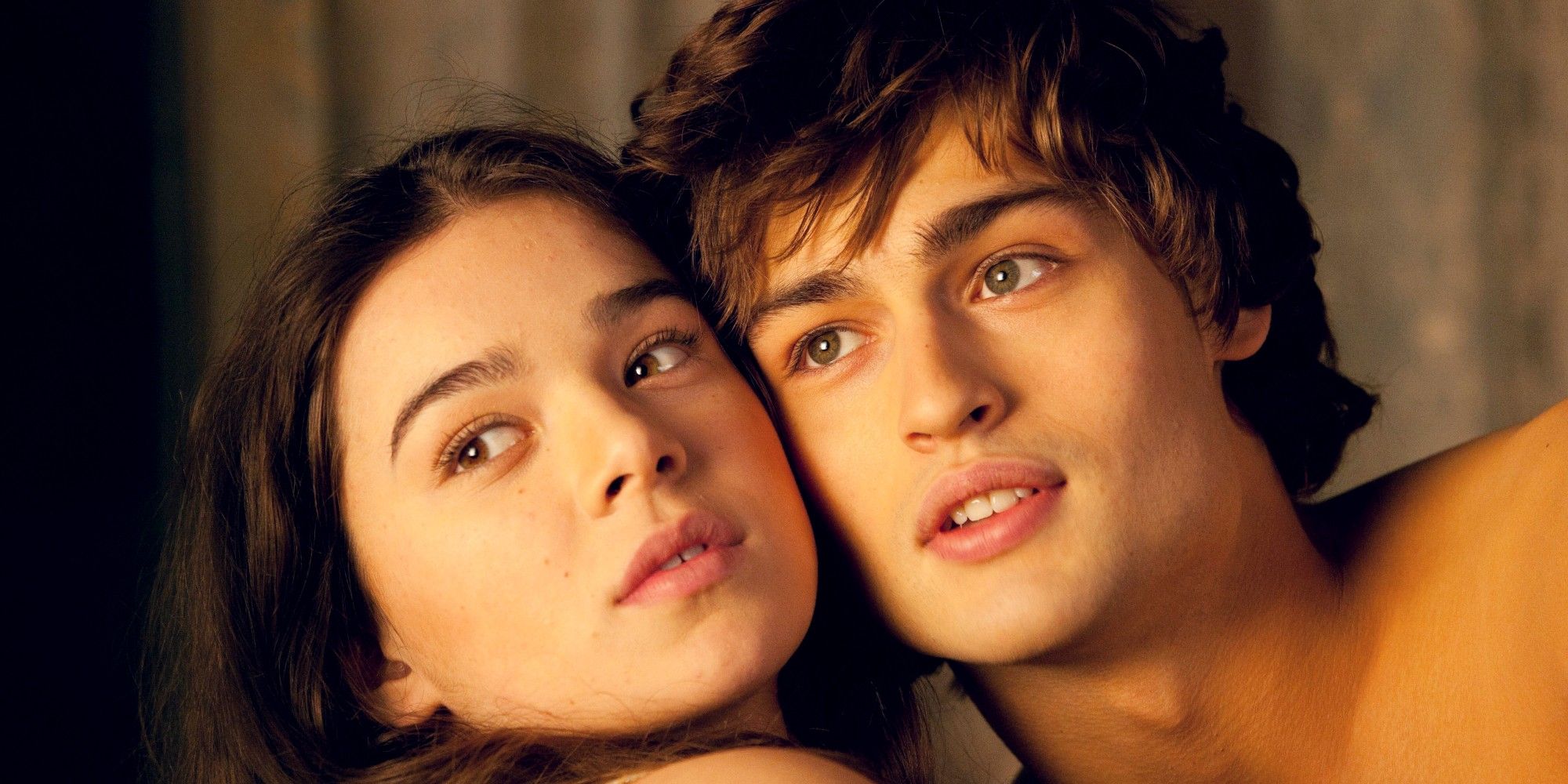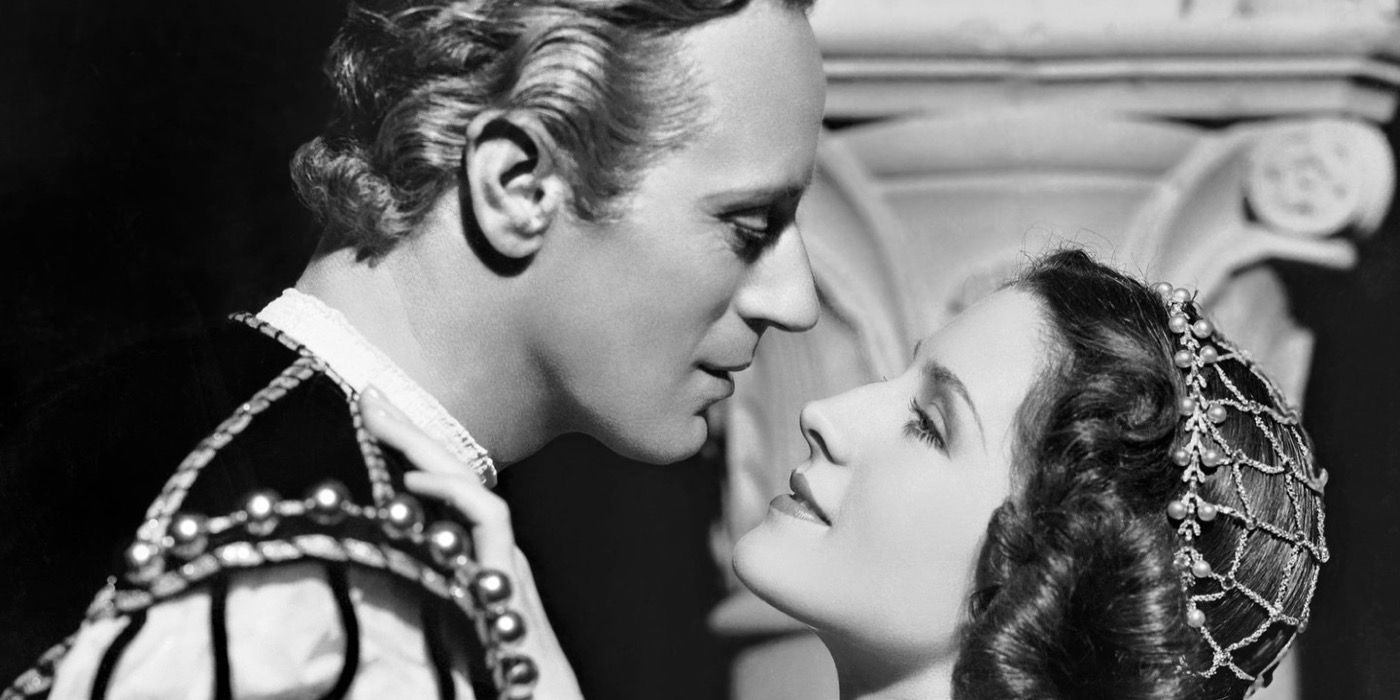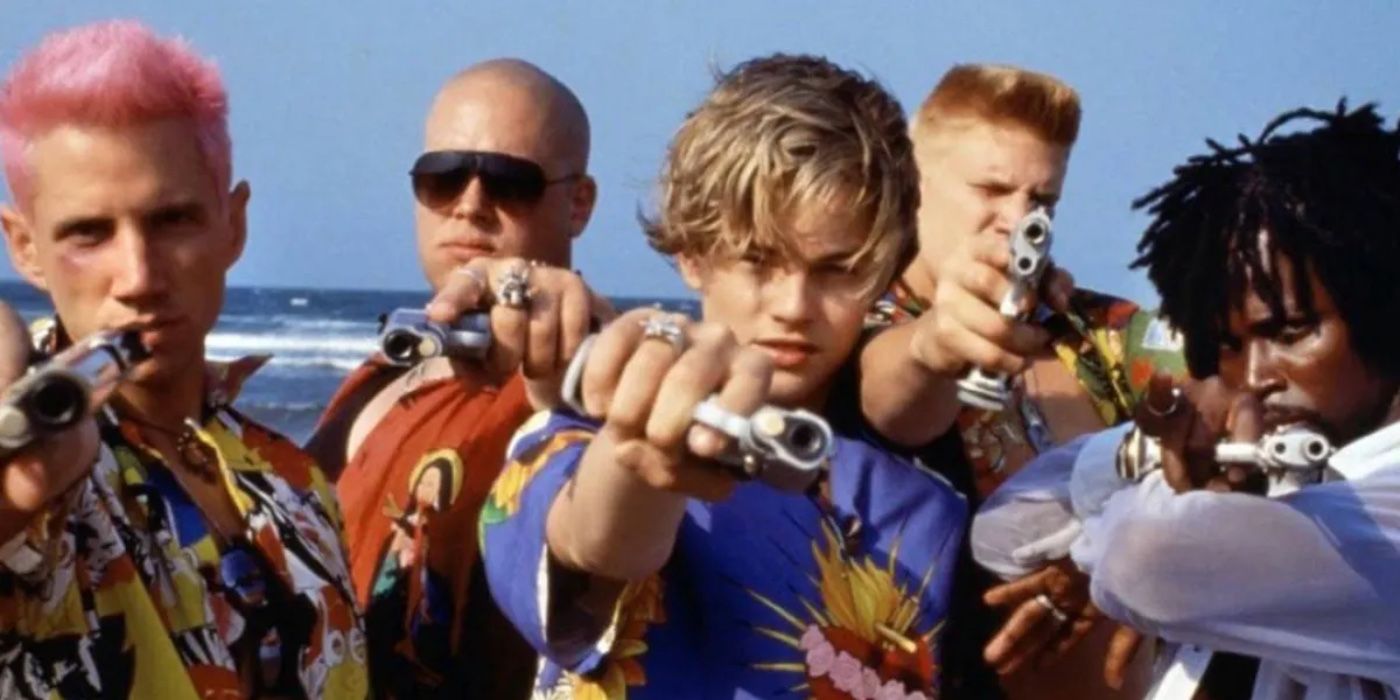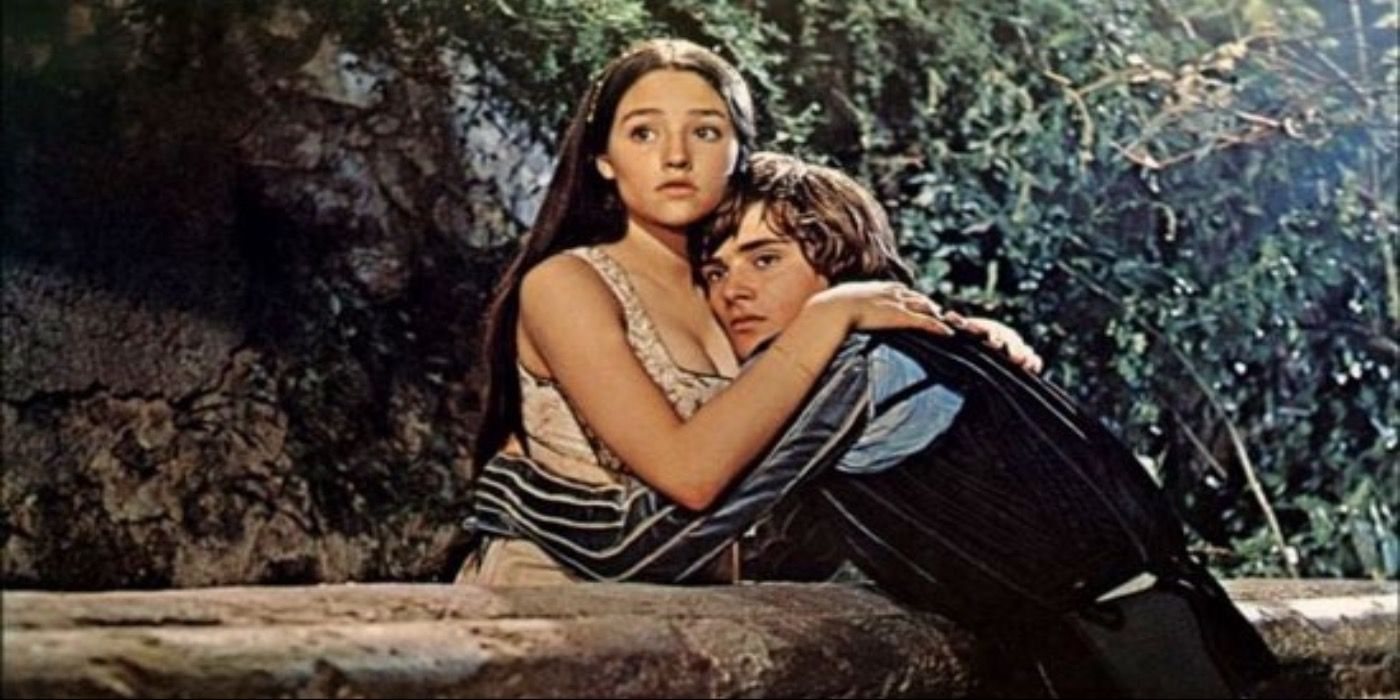Romeo and Juliet has been brought to the screen in a variety of different ways, but how do its traditional adaptations rank from worst to best? Shakespeare's most famous play with the possible exception of Hamlet, Romeo and Juliet tells the story of two star-crossed lovers from conflicted families whose tragic deaths ultimately restore peace. Reportedly premiering in 1597, the story has stood the test of time and transcended into archetype, with the pairing of the titular character's names becoming synonymous with the greatest lovers of all time.
The play's journey to the big screen began in 1936, with a George Cukor-directed MGM production that, despite its miscast leads, showed that the story's inherent power wasn't lost in the translation between mediums. Since that time, nearly every generation has received some take on the classic tale, from Franco Zeffirelli's iconically sensual 1968 production to Baz Lurhmann's flashy, modernized 1996 take starring Leonardo DiCaprio and Claire Danes. There have, of course, been various other updates of the tale for the screen, including but not limited to the Jet Li vehicle Romeo Must Die, the zombie rom-com Warm Bodies, and the classic musical West Side Story.
This list, however, will focus only on the adaptations of the play that hew most closely to Shakespeare's original text. That means no zombies, no Sharks, and no Jets. The 1996 Baz Lurhmann movie turns 25 this year, so it seems as good a time as any to look back on how these films rank from worst to best.
4. Romeo & Juliet (2013)
Every generation seemingly gets their Romeo and Juliet, but this adaptation by Downton Abbey scribe Julian Fellowes barely gets the blood pumping. Lavishly produced, with sumptuous costumes and gorgeous location work in Verona and Mantua, the emphasis on ornate visuals all too often buries the doomed romance at the film's center. It doesn't help that Hailee Steinfeld, so stellar elsewhere, including her Oscar-nominated turn in True Grit just three years prior, seems out of her depth as Juliet. Douglas Booth's Romeo is dreamy enough, but his monotonous delivery never makes Shakespeare's language sing. The adults fare far better, with particularly great turns from Lesley Manville as Juliet's Nurse and Damian Lewis as the controlling Lord Capulet, and a scene-stealing performance from Paul Giamatti as Friar Laurence. Overall, though, this is a rather bland, surface-level adaptation of the Bard's most famous work, with even the swordfights coming off as rote and formulaic.
3. Romeo and Juliet (1936)
Directed by Philadelphia Story and My Fair Lady helmer George Cukor, this 1936 adaptation is as Old Hollywood a treatment the play ever got. Produced by MGM, the film is stately to a fault, and one can feel Cukor's hesitance to break the mold of what's thought of as a traditional take on Shakespeare. That might all be fine, but the casting nearly does the film in, with the 40-something Leslie Howard and 30-something Norma Shearer completely incapable of accessing the frenzied rush of young love that gives the source material its heat and tragedy. Elsewhere, an elderly John Barrymore hams it up as Mercutio and Basil Rathbone offers up a peculiarly buttoned-up Tybalt. The surrounding production only serves to date the film more, although it is interesting to watch purely as an early cinematic take on Shakespeare's work, particularly before Laurence Olivier started showing Hollywood how it's really done.
2. Romeo + Juliet (1996)
As polarizing as any film Baz Luhrmann ever made, Romeo + Juliet famously modernizes the Bard's play, setting it on Verona Beach and transforming the conflict between the Montagues and Capulets into a full-blown mafia war. The film's frantic, MTV style is sure to alienate many, but it also serves to create one of the only truly successful films at capturing the full muscularity of Shakespeare's writing. Luhrmann's operatic sensibility, which swings from low comedy to high romance at the drop of a hat, is a perfect match for a playwright who was as adept at capturing the breathless infatuation of true love as entertaining the drunken groundlings who sat in the front row. The spirit of Shakespeare is what Baz is after here, and thus a transposition of Mercutio's Queen Mab speech into a drag queen performance of "Young Hearts Run Free" feels totally fair game. Sure, he could ease up on the machine gun-style editing, and some of the more "clever" additions, like guns branded "Sword" or a delivery company called "Post Haste," read more cutesy than necessary. However, Lurhmann also knows when to slow things down and rely on his performers. Leonardo DiCaprio was still a year out from playing Jack in Titanic, but his heartthrob status began with his dreamy, impassioned performance here as Romeo, and Claire Danes is one of the finest screen Juliets to ever take the role. Their meeting through a fish tank, scored by Des'ree's "Kissing You," is one of cinema's most heart-stopping love-at-first-sight moments, and their dynamite chemistry grounds the film right through to its shatteringly tragic finale.
1. Romeo and Juliet (1968)
It's difficult to imagine there will ever be a more definitive film version of Shakespeare's most celebrated play than this 1968 version. Directed by Franco Zeffirelli and starring inspired amateurs Olivia Hussey and Leonard Whiting, this simple but effective production is Romeo and Juliet at its most pure and essential. The freshness of Hussey and Whiting, so close to the actual ages of their characters, translates to the most primal depiction of the lovers' breathless teenage fling as the screen has ever seen. The balcony scene, which sees Hussey practically throwing herself over the edge to kiss Whiting's Romeo, immediately removes any staid preconceived notions about Shakespeare's writings and boils the central spine of the play down to its most relatable essence, that this is ultimately the story of two kids in love. The surrounding production matches the sensuality of the performances; Danilo Donati's costumes justifiably won an Oscar, and Nino Rota, composer of The Godfather, wrote a love theme that's just the right amount of ravishing and haunted. As long as the story of these original star-crossed lovers is able to elicit emotions from an audience, Zeffirelli's Romeo and Juliet will remain its greatest cinematic adaptation.

